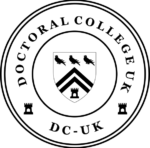Organization Structure

Board of Governors
The Board of Governors oversees the activities of the College and determines its strategic direction. they are fully informed of and involved in the strategic decision making in the college – this is to enable them to contribute effectively to the creation of the college’s vision and the development of clear and comprehensive strategic plans which achieve that vision.
Advisory Board
Collectively, they’re all responsible for making sure that the college’s offerings are relevant and of high quality. An advisory board can be instrumental in connecting board members, educators and students in achieving the college’s goals.
Academic Board
Purpose. Academic Board is the College’s senior academic authority and advises the Dean and the Board of Governors on the strategic direction of the College’s academic activities, academic risks and the overall effectiveness of services in support of the academic endeavour.
Other Committees
The other committees aid in the effective operation of the College by studying various issues and recommending changes to, or institution of, policies and procedures. Typical examples of other committees are: Audit and Risk Committee, Council Student Appeals Committee, Finance Committee. Governance and Nominations Committee, Remuneration Committee and College Strategy Implementation Committee.
Director & CEO
See following page on menu.
Academic Lead for Quality Assurance and Standards
The role is to lead and manage academic staff and activities specifically relating to academic standards and quality and to provide guidance and direction across the College and to the academic community, to ensure that the College’s reputation is protected and that the College is compliant with quality assurance and regulatory frameworks. The activities of the Academic Lead for Quality Assurance and Standards influence the way in which the College is perceived locally, nationally and internationally in terms of reputation, academic standards and the quality of the student experience. Fulfilment of the role requires contact with senior staff across the College including, influencing, negotiation and brokering, provision of advice and guidance and, when necessary, giving direction. It also involves direct line management of the Academic Standards and Quality team, including the prioritisation of work, objective setting, performance monitoring and staff development.
Academic Team
The academic team consists of Experienced Professors and Doctoral Staff to supervise and teach the doctoral students and deliver the taught programmes to postgraduate and undergraduate students.
Global Experience and Partnerships Manager
The role is to support the work of the Dean and CEO and he Academic Lead for Quality Assurance and Standards in the implementation of the Doctoral College UK Internationalisation strategy and to build and manage the Global Experience and Partnerships team. This will involve leading the development, maintenance, and support for Doctoral College UK international partnerships, such as access, articulation arrangements, study abroad agreements and collaborative programme delivery, and the provision of support for the operational delivery of relevant partnership programmes. Assist with the delivery of operational excellence and a high level of professional support in relation to the Internationalisation strategy and will contribute to the implementation of change management processes and have the ability to be both innovative and solutions focussed. Work collaboratively with international teams and Senior Staff at Doctoral College UK to ensure that the Internationalisation strategy contributes successfully to the wider international goals.
Administration Team
Our College administration team is a diverse business. It includes registry, human resources, finance, estates, marketing, public relations, conferences and catering, course administration and numerous other activities. These jobs are demanding roles where some people apply their professional expertise in finance, marketing, human resources and other areas in addition to their administrative skills. Most staff working in an administrative function have to liaise with a large range of people across the International partnerships Network. Those in human resources, for example, often have responsibility for that function over a particular group of staff – academics, catering, and technicians, for example. People in finance must monitor the budgets and spending of resources for which they are responsible, liaising with those responsible for all spending and buying activities.
